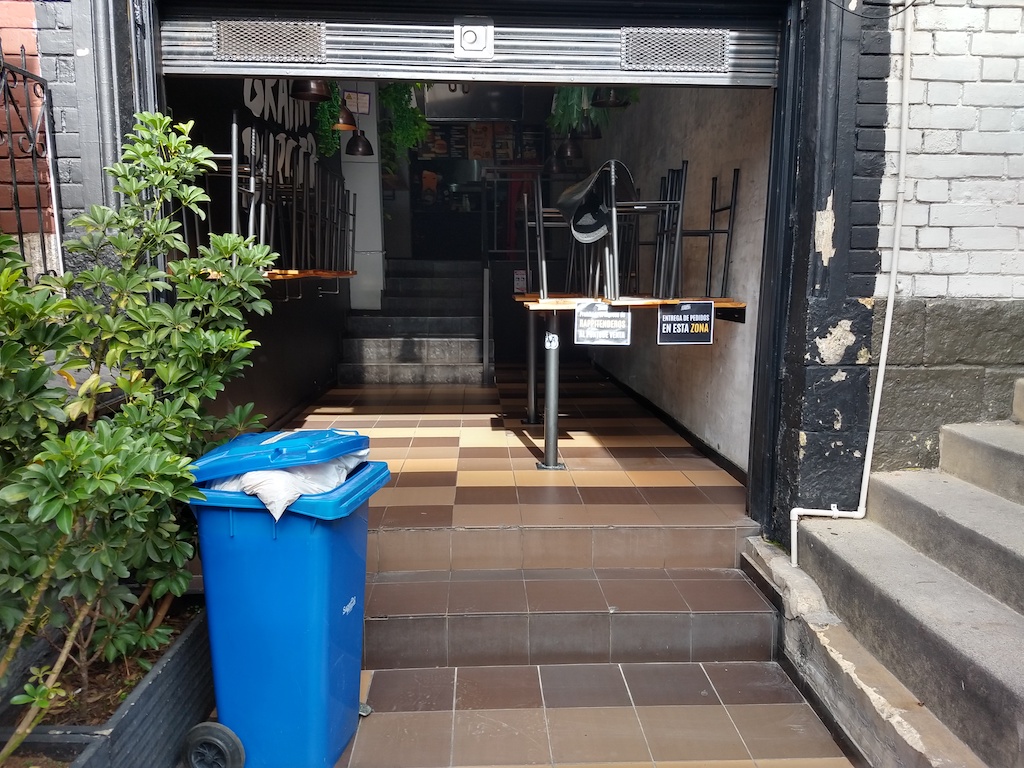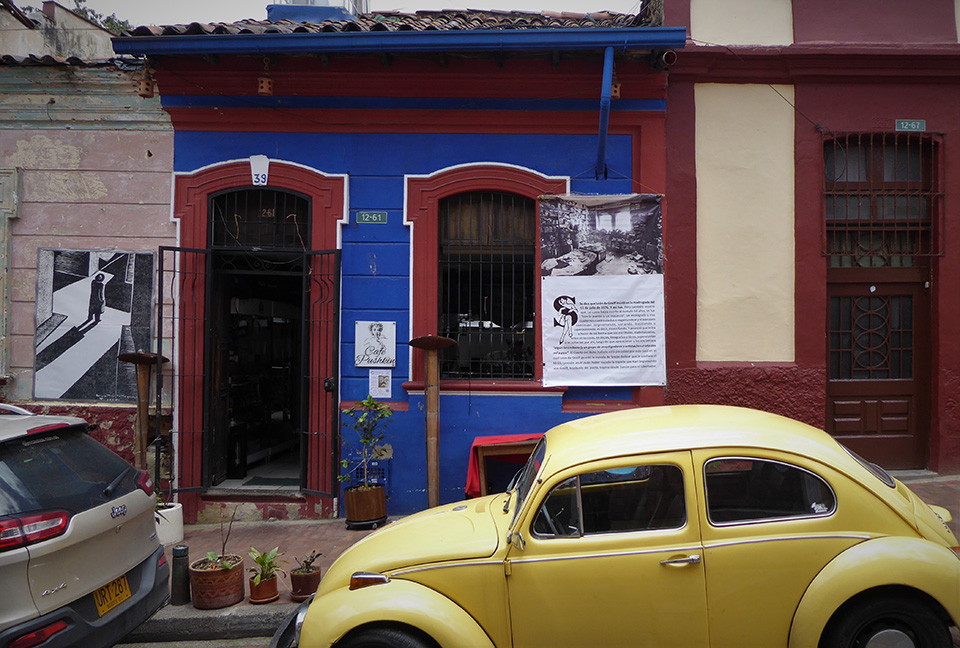As talk grows of an extension to the national quarantine due to the coronavirus, many small businesses are worried.

The lockdown is biting hard on small and medium-sized businesses, many of which face an uncertain time. And it’s hard to support local businesses while isolated in the house, which is frustrating since the high number of local businesses is one of my favourite things about living in Colombia. With that in mind, I spoke to some small business owners to find out how they’ve been affected and what they see in the future.
Remember, most local tiendas are open for business, as are local drugstores and some panaderías. When you go out for your one-person-per-household shop, it’s the perfect time to avoid supermarkets and support the less-frequented shops nearby. If you’re using delivery services, you don’t have to depend on domicilios from the big boys – some (mainly fast food) restaurants are operating delivery services, not always through Rappi. It’s also possible to get deliveries directly from small fruit and vegetable outfits.
Local shops may be able to open, but Bogotá’s bars have been shut for some time. Open Light is a cornerstone, almost literally, of the Lourdes nightlife. This bar has been rocking for 24 years. Now, though, the doors are closed and there’s no sign of life. “I have the ability to take this for a few months,” says owner Alex Moreno. “But not until the end of the year, as some are saying.” Even closing for months will hurt – Alex estimates he will lose around COP$40 million a month. “It’s a lot. Really a lot. The great majority [of small businesses] will go into bankruptcy. The economy wasn’t functioning well already. Then came this pandemic and it’ll finish off the weak companies or those that are starting.”
Read all our coverage on the coronavirus in Colombia
At least Alex has an established business with some ability to weather the storm. It’s a different story for those he mentioned that are just starting out – like newly-opened restaurant Oriundo near the Javeriana. “We opened to the public on the 16th of February,” owner David Serna Zuluaga tells me. “The business started well and we were generating a clientele. But as you would imagine, all our savings had been put into the business.” Then came the virus, and with it the quarantine. “We took the decision to close from the 20th March. We spoke to the cooks and gave them the produce we had left over. We’ve been talking to them to check their health and food situation. Today we managed to give them their pay for the last two weeks, even though we’ve been closed. The truth is, I don’t know if we can make the next salary payment. It all depends on the renegotiation of our rent.”
They tried opening the restaurant to make deliveries at least, but quickly found it wasn’t worth it, as Rappi takes a high percentage of the sale. “We tried a week, but it didn’t work. We don’t have enough sales to justify a percentage that high and it would have forced us to make a loss. We’d need around 50 orders a day to break even. In mid-April I believe we’ll return to operation, but doing our own deliveries. This is sustainable.”
At El Inglés, the capital’s home of English delicacies, they took a precaution and shut earlier than the official state-sanctioned dates. All members of staff are at home on holiday pay, including those who didn’t have pending holiday, and the restaurant sits empty. Owner and head chef, Lee Madden, is trying to remain upbeat, “I’m sure it will be very quiet once we reopen, but everyone is in the same boat.” He doesn’t expect much state assistance: “The odds of companies getting financial help is slim, they have cancelled utility bills for these three weeks, but if you’re closed you’re not using them anyway.” Positive words, but question marks remain, especially over the viability of having seated customers in the next few months.
Related: How can you help vulnerable Bogotanos during quarantine?
Macondogs provide an excellent dog walking service for people living around the Parkway and Sucre areas. Run by three Venezuelan entrepreneurs, they’ve built up a strong client base. With the quarantine restricting movement, though, they’ve had to shut down operations. Sylvia Rugeles is feeling the squeeze: “Like many companies, we feel like we’re between the sword and the wall in this crisis. We’re adhering to the governmental decrees, which has obliged us to stop work, strongly affecting our work and financial position, like any human in Colombia. I want to make it clear that we’re keeping ourselves in quarantine from our own free will and because it’s right. This situation has hit us a lot harder [than others] for being immigrants and for not receiving various government benefits.” As she points out, although money stops coming in, it doesn’t stop going out. “Worries come and go, the costs keep running: rent, food and other basic consumption.”
Germán Herrera of Sanar y Áloe Vera might be expected to be doing a roaring trade in these times of high demand for anti-bacterial gel. The reality, however, is a bit more complicated. His microbusiness normally produces moisturiser, as there’s limited demand for bacterial gel. However, when the virus came, he saw an opportunity and switched production. “For 20 days we were producing and selling well,” says his daughter Jennyfer, “but when the simulacro and later the quarantine started, the sales stopped.”
Demand still exists, but it’s not as easy as that, as Jennyfer explains: “Although people are ringing and making orders, it’s complicated because they’re making orders for single units and it’s not worth the risk of contagion to sell individually. Worse still, it’s not worth the sanctions either. The large orders don’t exist, because here [in Soacha] you only see the local shops open. The large companies are generally closed.”
One person who is doing well is Medusa Perverette, an online webcam model. With the dollar remaining resilient throughout the pandemic, she’s continued earning at a good rate. Better yet, with people locked indoors, many are searching for human contact in any way they can find, as Medusa explains. “Webcam platforms have always been an escape for many people. The truth is, I’ve passed [the quarantine time] taking advantage of the fact that everyone’s at home.”
Of course, her clientele is international, including plenty in Europe and Asia. “They’re worried,” she says, “but the thinking isn’t as depressive as here in Latin America. My users aren’t getting depressed, it’s the people here that are doing that.” It’s reassuring to know that for one person at least, life is good. “I made a million this weekend, it’s the perfect moment,” Medusa concludes.
How you can support local businesses:
- Where you can, shop with local stores rather than the big chains
- Reach out to local business owners and see if you can support them: Some shops are selling off stock in bulk or trying to survive through small orders
- Check on their facebook / instagram feeds to see if they are doing deliveries. If they aren’t, see if you can negotiate a solution
- If you usually pay for a service, whether it is cleaning or dog walking, commit to keeping up those payments if you can afford it. After all, it’s better for you if the service providers stay in business.





